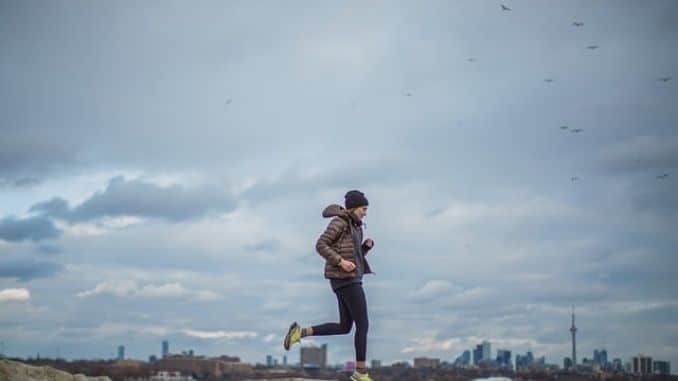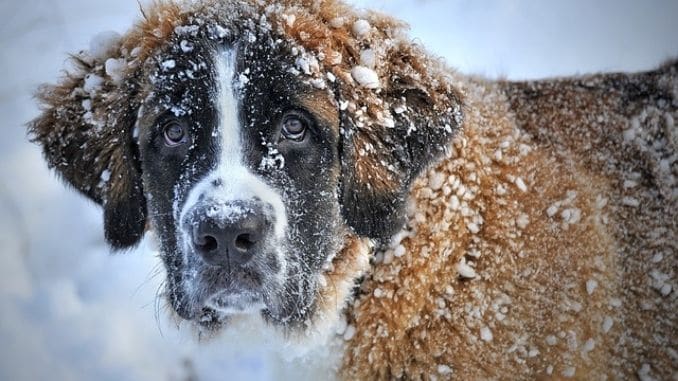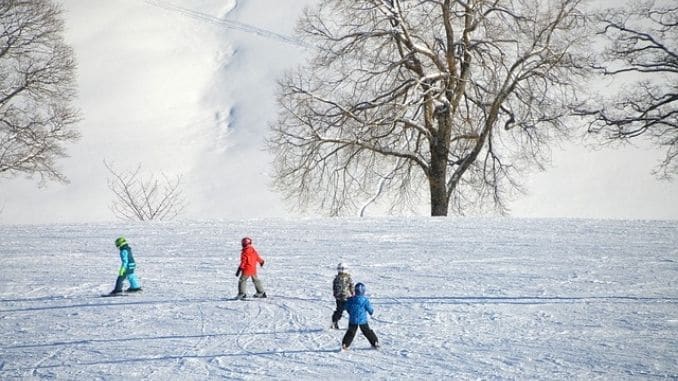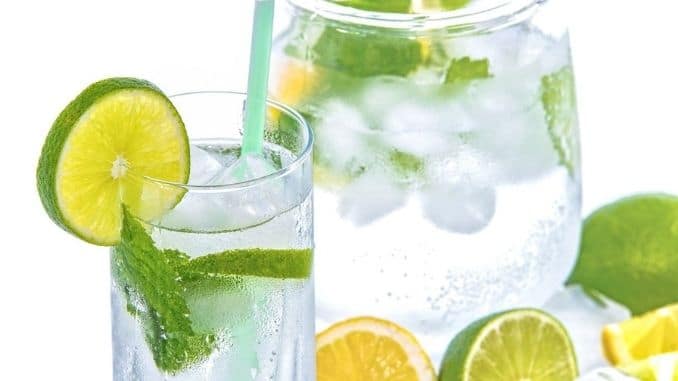
“Be sure to wear your coat!” your mother used to say. “You’ll catch a cold!”
From a young age, we’re taught that cold weather can be dangerous. Get too chilled, and you could pay for it by developing a cold, flu or other infection. Stay out in extremely low temperatures for too long, and you could also suffer from frostbite.
However, what most of us don’t learn are the many ways that cold weather is good for you can benefit our health. To help you take a more positive view of the season’s changes, here are seven ways that cold weather is good for you might actually be good for you.
1. Colder Temperatures Help You Focus
If you tend to focus more on big projects and problem-solving during the winter months, there’s a reason for that. According to one study on winter’s effect on the brain, cognitive function —thinking power — is greater during the winter weather than it is during the summer weather. Hot, humid air makes it more difficult to think clearly whereas cold, crisp air encourages focus and attention.
In the study, participants performed better on tests evaluating verbal memory, attention and simple reaction time in the winter than they did in the summer. So, if you’ve got some important thinking to do, you may want to take a quick walk out in the brisk winter air first.
In people who already have dementia, however, the effects are reversed. Studies have found that thinking ability in Alzheimer’s disease patients, for example, gets worse in winter and early spring. Scientists aren’t sure why that is yet but hope to find out with additional research.
2. Colder Days May Help You Burn More Calories
When it’s cold outside, your body has to work harder to keep you warm. That means you can burn more calories doing the same activities. Your body needs the energy to generate heat, so it burns those calories to produce that energy. Even if you’re only slightly cold, the body has to increase its own heat generation, which takes more calories.
Cold temperatures may also activate the body’s fat-burning mechanisms, helping you to lose a few extra pounds. In a 2012 study, researchers found that, when exposed to moderately cold temperatures, participants’ bodies were more likely to turn dangerous “white fat” into the more energy-efficient “brown fat” to help keep them warm. Brown fat burns off more quickly than white, so that’s a positive change.
Other research has found that even just 15 minutes of shivering can induce fat-burning processes — to the equivalent of exercising for an hour.
3. When It’s Colder Outside, You Sleep Better Inside
You’ve probably heard how important it is to get seven to eight hours of sleep per night. Sleep deprivation is linked with an increased risk of many diseases, including heart disease and diabetes. Some studies have found that chronic sleep deprivation can shave years off your life.
Fortunately, winter weather typically means that you’ll sleep better. Research on people suffering from insomnia discovered that “cooling caps” were helpful in allowing the participants to get more sleep. Those who wore the caps, which contained water circulating at cool temperatures, fell asleep more easily and slept longer too.
The temperature in the room is one of the most important factors affecting sleep, according to a 2012 study. Scientists found that heat exposure increased wakefulness and decreased deep sleep and cooler temperatures helped people fall asleep faster and improved sleep quality. The standard recommendation is to keep your bedroom between 60 and 67 degrees Fahrenheit.
4. Cold Air Can Make Your Skin Look Better
You may notice fewer acne breakouts and smoother-looking skin in the winter months. That’s because the cold air acts as an astringent, causing pores to look tighter and smaller, and reducing the risk of clogging and infection. It also slows the skin’s production of sebum (skin oil), so if you typically have oily skin, it will look less shiny than it does in the summer months.
Because you are likely to sleep better in the colder weather, your skin can look better as well as lack of sleep has been linked with the accelerated formation of age spots and wrinkles. Colder air reduces puffiness, which may help diminish those under-eye bags.
Humidity levels also tend to drop off in the colder months so that you may experience more dryness and flaking. However, as long as you’re using a good moisturizer, you can counteract those effects.
5. Winter Weather Means Fewer Allergies for Many
If you typically suffer from allergies related to pollen, the winter weather can be a blessing. Pollen counts drop off, and you’ll notice fewer days marred by itchy eyes and sneezing. Once the snow starts flying, pollen becomes virtually nonexistent, so your symptoms will diminish significantly or even disappear altogether.
If you’re still noticing watery eyes and an itchy throat, however, it could be that you have indoor allergies as well. Mold and dust mites tend to get worse in the winter, so keep your home ventilated as well as you can, such as opening a window now and then, vacuum frequently and always get rid of any mold or excess moisture you see. Don’t forget to check your houseplants as mold can develop in moist soil.
6. Cold Temperatures Can Kick-start Your Immune System
The cold weather brings with it the cold and flu season, so it’s important to do everything you can to keep your immune system strong. Interestingly enough, getting out in the cold now and then may help you do that.
In one study, researchers evaluated participants who were immersed in cold water for one hour three times a week during a period of six weeks. As the weeks went on, the participants’ immune systems got stronger and stronger. Blood concentrations of certain immune cells went up after each week.
In another study, researchers had participants engage in hot-to-cold showers each day during a period of 30 days, then followed them for another 60 days after that, when the participants could continue the temperature-change showers or not, at their choice. Those who participated in the cold showers had a 29 percent reduction in sicknesses reported compared to a control group that didn’t take the cold showers.
7. Cold Air Banishes Pest-based Diseases
Even if you have to worry more about the common cold and flu during the winter, the good news is you don’t have to worry about mosquito-borne diseases like the West Nile or Zika viruses. You can also forget about tick-based diseases like Lyme disease. These pests hide out during the winter months, giving you a break from all that worrisome buzzing and biting.
How to Take Advantage of the Cold’s Health Benefits
If you want to stimulate your immune system, rev up your fat-burning metabolism or refresh your skin, try these methods to put the cold to work for your health.
Take a Cold Shower Now and Then
Turning the temperature to cold while you’re showering regularly may help stimulate your immune system. Because cold water reduces inflammation, it may also help relieve muscle pain. Adjust the temperature for 30 to 90 seconds, then switch it back to warm. If you’re super brave, go with the colder temperatures the entire time. You’ll emerge feeling refreshed and energized.
Try Cold-water Swimming
You may have seen stories about other people taking a quick dip in a cold lake for the invigorating effects. Cold-water swimming is based on the same idea — you swim in a pool, lake or pond when it’s chilly. The hobby has been around for centuries. There are even cold-swimming clubs around the world that bring people together for a chilly dip and ice-swimming competitions where athletes train in progressively colder waters. You don’t have to go to that extreme, but swimming in colder water may be an easy way to recharge your system. Be sure to take the proper precautions, however, and remember that extreme temperatures can be dangerous.
Take Your Workout Outside
You may be tempted to stick to the gym during the winter months, but keep in mind that with the right clothing, there’s no reason why you can’t enjoy outdoor exercise too. You will probably burn more calories by doing so and, since the cold weather makes your heart work harder, regular outdoor workouts can result in a healthier, fitter heart by the time the winter is over. Plus, getting out into the fresh air is likely to lift your spirits and leave you feeling more energized than if you stay inside. Just don’t forget to warm up and cool down appropriately. Check out our other article, “20 Tips to Keep You Safe and Warm During Winter Workouts” for more helpful tips.
Drink More Ice-cold Water
In the colder months, we’re drawn to hot cups of coffee, tea, and cocoa as well as steaming bowls of soup. There are benefits to drinking a nice tall glass of ice-cold water, however, even in the winter. You’ll cool your body down, which will stimulate it’s heat-generating processes —helping you burn more calories — and you’ll also help keep yourself hydrated, which is typically harder to do in the winter. The cold air makes it easy to forget to drink. Keep a daily chart and get at least eight glasses of ice-cold water for an easy way to enjoy the health benefits of cold.
For your guide to the best foods to heal your body, check out The Best Foods that Rapidly Slim & Heal in 7 Days, here!
.







